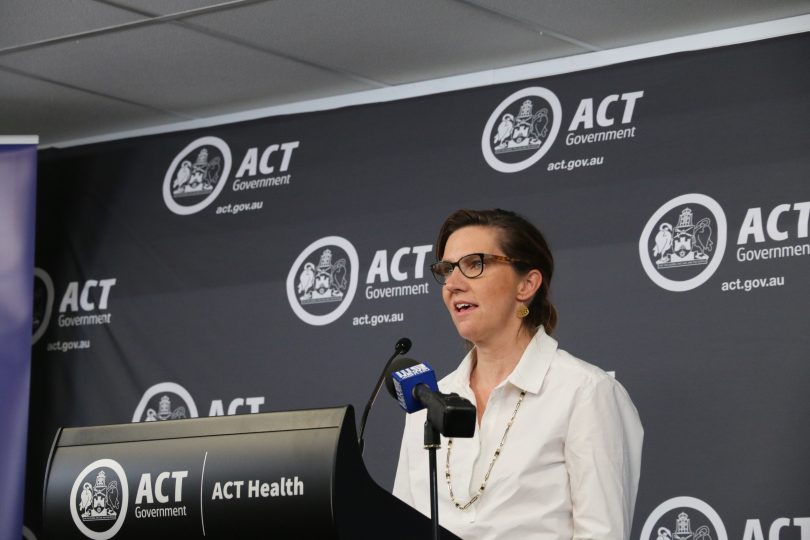
Acting Chief Health Officer, Dr Vanessa Johnston: “The things we need to do to slow down the spread of both of these illnesses are the same things we should all be doing to help prevent the spread of COVID-19.” Photo: File.
An upsurge in gastro and a respiratory virus are hitting children in the ACT.
The ACT’s Deputy Chief Health Officer, Dr Vanessa Johnston, is urging Canberrans to keep sick children at home and pay particular attention to hand and respiratory hygiene to help reverse a recent increase in both viral gastroenteritis (gastro) and Respiratory Syncytial Virus (RSV) infections.
The number of reported gastro outbreaks was more than four times higher than average in November, while ACT Pathology has confirmed more than 400 cases of RSV in the last quarter of 2020 to 6 December, mostly among children under five.
Following a lower than usual number of cases through the usual winter peak RSV season, cases are now being confirmed at about 10 times the average for this time of year.
RSV causes respiratory and sometimes ear infections. Symptoms include fever, cough, runny nose and wheezing.
While most children recover in eight to 15 days, some, especially those younger than six months, may develop complications such as bronchiolitis or pneumonia and require admission to hospital.
People can get infected with RSV by breathing in droplets from an infected person’s cough or sneeze, or by touching contaminated objects or surfaces and then touching their face.
“The things we need to do to slow down the spread of both of these illnesses are the same things we should all be doing to help prevent the spread of COVID-19,” Dr Johnston said.
“That means washing your hands regularly, covering your mouth and nose when you cough or sneeze, remembering to physically distance when possible and importantly, staying home when you are sick.
“I strongly urge parents to keep their children at home if they are at all unwell. If you are concerned about your child’s health then please contact your GP, or in an emergency, call 000.
“Because RSV can have very similar symptoms to COVID-19, it is also important to remember that anyone, including children, who develop a fever, cough, shortness of breath or a sore throat should get tested for COVID-19.”
Outbreaks of viral gastroenteritis, which is highly infectious, have been on the rise in the ACT over recent months. Symptoms include nausea, vomiting, diarrhoea, abdominal pain, fever and muscle aches. In childcare settings, children usually get infected when unwashed hands are placed directly in mouths or touch food or drinks.
“Good hand hygiene is the best way of preventing the spread of viral gastroenteritis,” Dr Johnston said.
“Washing hands with soap and water is more effective against some viruses that cause gastro than using alcohol-based hand sanitisers.
“Surfaces and objects at home and in childcare settings, like benchtops, doorknobs, computers and mobile phones, should be cleaned frequently. When cleaning, use a detergent-based product to clean surfaces. If cleaning up after a body fluid spill, use a diluted bleach solution after first cleaning the surface with a detergent based product.”
Parents should monitor their children for symptoms of gastro and respiratory infections. Children with respiratory symptoms should remain home until symptoms have resolved, and children with gastro should stay home for at least 48 hours after diarrhoea and vomiting have completely resolved.
More information about Gastroenteritis can be found on the ACT Health website; and Respiratory Syncytial Virus can be found on the healthdirect website.

















